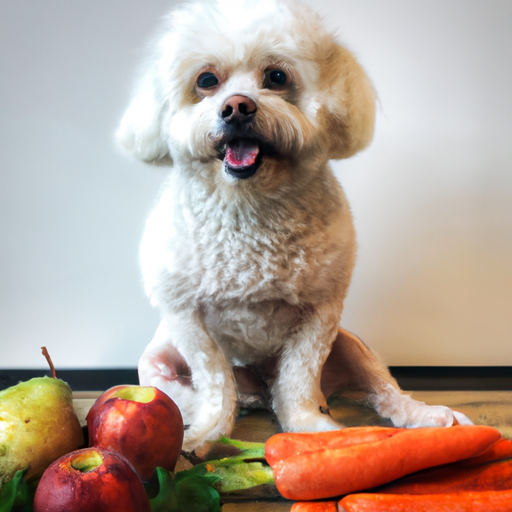As a caregiver to your four-legged friends, it’s important to know what foods are safe for them to consume. This guide will offer insight on what food can dogs have, ensuring that your pets remain healthy and happy.
H2: The Essentials of a Dog’s Diet
Just like humans, dogs require a balanced diet to maintain good health. Here’s what their meal should typically consist of:
- Proteins: This could be from meat, eggs or dairy.
- Carbohydrates: These provide your dog with energy. They can be found in foods like rice, corn, or potatoes.
- Fats: Fats help to keep your dog’s coat healthy and shiny. They are present in oils, meat, and some types of fish.
- Vitamins and Minerals: These are required in small quantities and are usually found in dog food.
H2: Foods That Are Safe for Dogs
Here are some human foods that are generally safe for your canine companions:
- Peanut Butter: A great source of protein and healthy fats.
- Chicken: Can be served cooked and unseasoned.
- Carrots: They are low in calories and high in fiber and vitamins.
- Yogurt: It’s high in calcium and protein. Make sure it’s unsweetened and unflavored.
H2: Foods Dogs Should Avoid
While dogs can eat a variety of human foods, there are some they should definitely steer clear of:
| Food | Reason for Avoidance |
|---|---|
| Chocolate | It contains theobromine, harmful to dogs. |
| Grapes/Raisins | Can cause kidney failure. |
| Onions/Garlic | They can damage a dog’s red blood cells. |
| Avocados | Contains persin, toxic to dogs. |
| Alcohol | It can cause intoxication and health risks. |
H2: Feeding Your Dog: Portion Sizes and Frequency
The amount and frequency of meals depend on your dog’s age, size, and activity level. Puppies usually have five meals a day, while adult dogs should be fed two. Pay close attention to the portion sizes – overfeeding can lead to obesity, which can cause various health problems.
H2: Special Dietary Considerations for Dogs
Some dogs may require special diets due to health issues. For instance, dogs with diabetes need low-fat, high-fiber diets. Dogs with kidney disease should have a diet low in phosphorus and proteins. Always consult with a vet before making any drastic changes to your dog’s diet.
FAQ
Q: Can my dog eat dairy products?
A: Some dogs are lactose intolerant. You should introduce dairy products in small amounts and see how your dog reacts.
Q: Is it safe for my dog to eat fish?
A: Yes, but it should be cooked and boneless.
Q: Are eggs good for dogs?
A: Yes, eggs are safe for dogs and are a great source of protein.
Q: Can dogs eat fruits?
A: Some fruits like bananas and apples are safe, but avoid grapes and avocados.
Remember, every dog is unique, and what works for one might not work for another. Always consult with a vet for personalized advice. Your furry friend’s health is always worth it!



